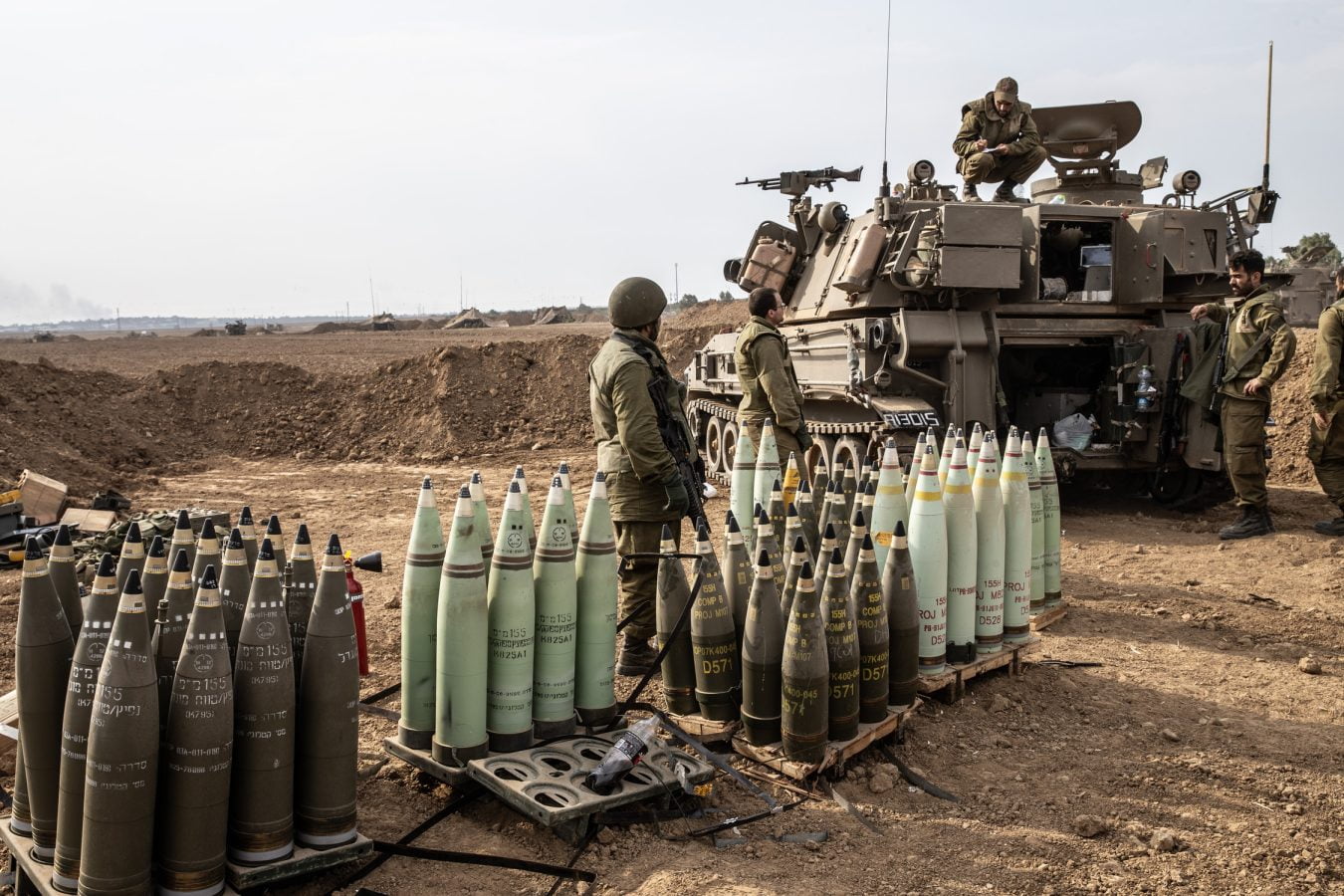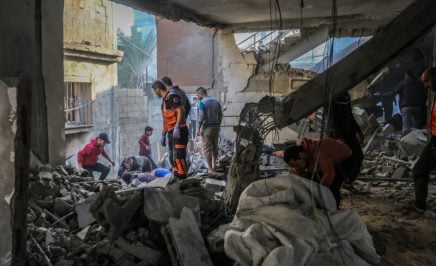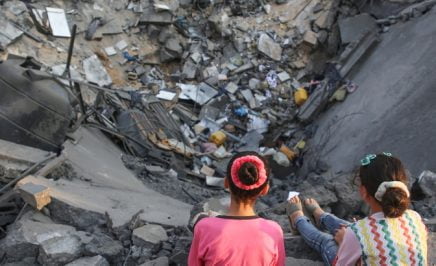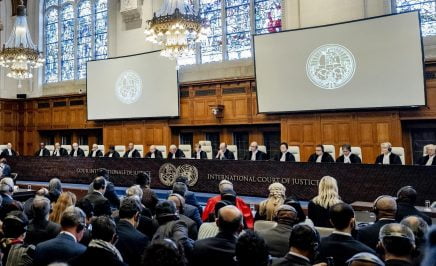For over six months, as people have taken to the streets, signed petitions, sent emails, and called politicians, the Australian government has strengthened their policies and positions concerning the outbreak of violence in the Occupied Palestinian Territories and Israel. They have called for a ceasefire, for the protection of civilians and respect for international law, and restored UNRWA funding.
However, Australia’s opaque defence goods export policy has raised concerns that goods made in Australia could be being exported and used by the Israeli Defence Forces.
Australia has approved 230 export permits for defence goods and exported thirteen million dollars worth of arms and ammunition to Israel in the past five years.
The government has said that Australia hasn’t supplied weapons to Israel for at least the past five years. But if the government has approved hundreds of permits for defence goods and exported millions in arms and ammunition in that time, how is that possible?
The lack of transparency in Australia’s defence export policy means we don’t know exactly what was approved for export. Read on to find out what the Australian government does tell the public about what they approve for export (it’s not a lot), what questions we still need answered, and what it might mean as Israel continues a campaign of death and destruction in Gaza.
Palestinians in Gaza are at risk of genocide
The Israeli authorities’ willingness to flout international humanitarian law and their chilling disregard for Palestinian lives have been demonstrated and documented by Amnesty through repeated cycles of violence.
But the scale of suffering and destruction Israeli authorities have inflicted on the people of Gaza in recent months is unprecedented. The cruelty of these attacks on homes, schools, hospitals and refugee camps defies belief.
The International Court of Justice (ICJ) has found that the people of Gaza are at real risk of genocide. The time to act, and to ensure nothing manufactured in Australia is exported for use by the Israeli Defence Forces, is now.
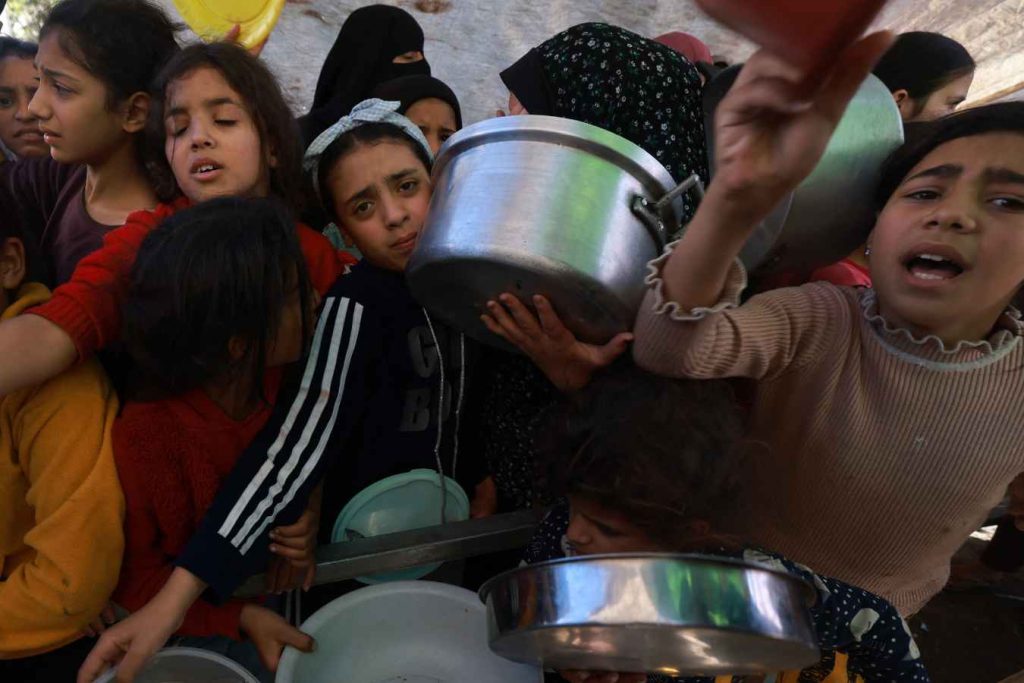
What has Australia supplied to Israel?
The government has repeatedly said that “Australia has not supplied weapons to Israel since the conflict began, and for at least the past five years.” But Australia’s unclear defence goods export approval process makes it impossible to verify that claim.
We know that Australia has approved hundreds of export permits for defence goods to Israel in the last five years. What we don’t know is what those items were. That’s because Australia only releases information on the number of permits approved to each country, not what has been approved.
When a manufacturer wants to export an item on the defence strategic goods list, they apply for an export permit to the Department of Defence. The Department assesses the permits for “human rights risks and Australia’s compliance with its international obligations.”
The Department has said a permit would be refused if there was an “overriding risk that the goods … may be used contrary to the national interest or to violate human rights.”
The defence strategic goods list includes “military or dual-use equipment.” Dual-use equipment is an item that can be used both for civilian and military applications.
Successive Australian governments have often raised the fact that dual-use equipment can be used for civilian purposes when asked about exports, saying the goods could be sporting guns or radios. These statements obfuscate that this equipment can also be used for military purposes, why it’s on the defence strategic goods list in the first place.
What’s being manufactured in Australia?
The prime contractor of F-35 fighter-jets is Lockheed Martin. Lockheed Martin has said that “Australian businesses are supplying components for the entire F-35 fleet, not just Australian aircraft. Every F-35 built contains some Australian parts and components.”
On 12 February a Dutch court ordered the government to halt the export of “F-35 parts to Israel because of the “clear risk” that they are being used in “serious violations of international humanitarian law”.
At Senate Estimates in February, Department of Defence representatives said that “under the UN definition, weapons are defined as whole systems, like armoured vehicles, tanks and combat helicopters.” The representative didn’t confirm if the government considers F-35 parts manufactured in Australia to be weapons.
The question remains: what is Australia approving to be exported to Israel?
Exports aren’t tracked once they leave Australia
There’s another big problem with Australia’s defence goods export process. The government doesn’t track where exports end up or how they’re used after they leave Australian shores. That’s concerning given the way global supply chains work. It’s common that exports approved to one country end up being used in another country.
For example, a weapons part might be manufactured in Australia and approved for export to the UK. There it could be part of a manufacturing process, before being sent to another country to be assembled before being sent to what’s called the ‘end user’ of the weapon.
That means a part manufactured in Australia approved for export to the UK could end up being used by the Israeli Defence Force.
The Australian government doesn’t name the end user of an export permit when they release the number of permits. And the goods aren’t monitored once they leave Australian shores, which means we don’t know if Australian-manufactured goods are being used to abuse human rights.
Our export process needs urgent reform
The government has criticised the conversation around Australia’s arms exports to Israel, characterising some online commentary as “misinformation”. Since the first days of this crisis, Amnesty has warned about the insidious influence of misinformation and disinformation. It’s crucial that information is able to be verified and that unsubstantiated claims aren’t repeated as fact.
Unfortunately, the nature of Australia’s approval process makes it impossible to know what the government is approving to be exported. It’s the secrecy and lack of accountability in Australia’s export policy that’s created the confusion.
Under the Arms Trade Treaty, Australia has an obligation to assess if there’s a substantial risk that a proposed export will contribute to serious human rights abuses, and not to transfer arms when there’s a risk they could be used to commit war crimes or other violations of international law. This obligation applies not only to whole weapons systems (what the Department of Defence referred to in Senate Estimates), but also to parts or components of an arm or weapon. So Australian has an obligation not to approve arms and weapons parts where there is a risk that they will be used to commit serious human rights abuses.
Australia is also a signatory to the Genocide Convention and has agreed to do everything in its power to prevent genocide. Amnesty International believes that this includes committing to not approve the export of any weapons parts where the Israeli Defence Force is the end user of the export.
We must reform our process so that details of what is approved, and their end user, are publicly available, and so that there’s monitoring of arms once they leave Australian shores. If the government’s worried about misinformation, the best remedy is to ensure that the facts are readily available.
This already happens in a lot of countries. In the United Kingdom, information about requests for export permits, as well as the nature of the exports and even the dollar amount, is publicly available. Although the United States is the world’s largest exporter of arms and by far the major supplier of arms to Israel, they publicise all arms approved for export and conduct end-use monitoring.
Australia must stop approving exports of defence goods to Israel NOW
Australia can’t continue to approve defence goods to be sent to Israel where there’s a real risk of genocide.
Right now, approximately 1.5 million Palestinians are displaced in Rafah, an area of only 65km². Now, Prime Minister Netanyahu has ordered the Israeli military to prepare to evacuate civilians amid reports of an imminent ground operation. The harrowing developments on the ground underscore the urgent need for the international community to back up their calls for a ceasefire with meaningful action.
As Israel continues its brutal campaign of death and destruction, the Australian government has released a statement calling for an “immediate humanitarian ceasefire” and has voted to support a ceasefire in the UN General Assembly. This is the result of people all around Australia speaking out and taking to the streets, urging the government to take action.
We know that people power works. We must work together to reform Australia’s defence export process and ensure that nothing made in Australia is used to commit war crimes, by Israeli forces in Gaza, or by anyone, anywhere.
